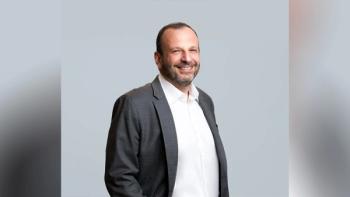
- Pharmaceutical Executive-11-01-2019
- Volume 39
- Issue 11
The Pace of Massive Innovation
Though uncertain market dynamics remain at play, the current magnitude of innovation in biopharma is staggering, and, at times, overwhelming.
I’ve touched on this point a few times over the years, there is no such thing as an overnight success. What looks like an overnight success is really a good chunk of years of someone’s life, laboring at a point of science-in this world of therapy development-of which they couldn’t let go. And many of these innovations, while they
have a few successes, CAR-T, gene therapy, immunotherapy, are still in their infancy. Scientists may have been laboring at their research for 20, 25, 30 years, but the current magnitude of innovation is staggering, and, at times, overwhelming.
Salim Syed, head of biotechnology research, senior biotechnology analyst and managing director at Mizuho, says, “There is so much innovation going on. Biotech is going faster and faster and no longer can any one person know everything about all that is out there.” And it is clear that this innovation invasion is not lost on pharma executives themselves. Here’s a sampling of what some recent executives have said about innovation and partnering with biotech.
- Joe Jiminez, former CEO of Novartis at the Veeva Systems R&D Summit: “I think what’s happening is big pharma is recognizing that they have to look beyond the four walls of their companies for innovation. Even the ones that traditionally were only focused on internal development. So you’re starting to see some of the big companies say, ‘Wait a second, we’ve got to seed innovation outside and we’ve got to swoop up some of the technologies even before they’re in the clinical stage.’”
- Bernhardt Zeiher, MD, FCCP, FACP, chief medical officer of Astellas, in a recent Pharm Exec
interview : “Biotechs are increasingly able to take these new molecular entities (NMEs) all the way to approval themselves, which has put pressure on pharma to think about how to bring innovation in-if the biotechs aren’t seeking us as partners earlier in the development of products. There are still opportunities to partner with biotech, but now it’s more of a question of how to structure it in a way that is complementary and attractive to both sides.”
- Sebastian Guth, president of pharmaceuticals, Americas region, Bayer, in an interview to appear on pharmexec.com in December: “[Bayer] had to make a clear choice between pushing the boundaries of science, investing in the big bets in science or staying in the here and now. And we’ve made our choice and are convinced that science and innovation are the way to go. In many ways, the decisions that we have made are already being reflected in our portfolio and pipeline today.”
All of these points are not lost on Syed, who in his various roles at Mizuho, deals with the financial questions of biotech every day. To Jiminez’s point, pharma is now looking to get into technologies very early, before they are in clinical stage.
“Five years ago, you would never look at companies that were pre-Phase II; if they wanted to go public, they needed data. Now, they have no data, or are preclinical, or have very small and early 10-20 patient trials,” says
Syed.
“Will that reverse trend in 2020?” he posed. As with most industries, a watchful eye is on the 2020 election year-and where these biotechs want to be is now a concerning business question.
There are certain things that can stall the pace of innovation. Past examples include an early death in gene therapy that set a chilling effect on that area in the late 1990s; transplantation advances that were shut down during the AIDS crisis; and Vioxx taken off the market in the early 2000s for CV events. Each one of these areas are now new and vital parts of therapeutic innovation, but they had to weather a storm, and in the end, the science grew stronger.
Financial pressures from uncertain market dynamics, including elections and overall drug pricing and reimbursement concerns, all have effects. But how chilling will they be? With the pace of massive innovation, it seems nothing can stem the tide.
Lisa Henderson is Editor-in-Chief of Pharm Exec. She can be reached at
Articles in this issue
about 6 years ago
Pharm Exec’s 2020 Pipeline Reportover 6 years ago
R. Jude Samulski: Gene Therapy’s Guiding Forceover 6 years ago
The Quest to Measure Drug Effectivenessover 6 years ago
Biosensors in Pharma: A Dose of Optimismover 6 years ago
Closing the Science and Manufacturing Divideover 6 years ago
Pharmaceutical Executive, November 2019 Issue (PDF)over 6 years ago
Country Report: SwedenNewsletter
Lead with insight with the Pharmaceutical Executive newsletter, featuring strategic analysis, leadership trends, and market intelligence for biopharma decision-makers.




